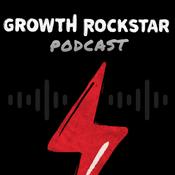Episodios disponibles
5 de 287
- Shake It Off: Office investing is coming backShorenstein CEO Brandon Shorenstein and CBRE’s Patrick Gildea discuss why the office market is poised for a comeback. Hear what they have to say about risk-adjusted returns, property conversions, the importance of workplace amenities and more.Key takeaways on office investing: Office market is recovering: Investment activity in the office sector is rebounding with more bidders and increased debt availability. Investment strategies have shifted: Investors are focused on cash flow and downside protection, with cash-on-cash yields reaching 8%–15%. Micro-market dynamics are key amid a flight to quality: Prime assets in live-work-play submarkets are outperforming, while obsolete buildings face demolition or conversion, reducing overall supply. Conversions are limited: Selective repositioning is critical, as only a small percentage of office buildings are structurally viable for residential or hotel conversions. Occupier priorities have changed: Tenants now prioritize wellness, sustainability and experiential amenities, driving demand for high-quality spaces.--------41:21
- Look Around: Exploring today’s capital strategiesClarion’s Brent Jenkins and CBRE’s Zaahir Syed discuss how capital raising for real estate is rapidly evolving. They provide insights on fund development, non-traded REITs, emerging opportunities in private wealth markets and more.Key takeaways on raising and deploying capital: Sourcing real estate capital is diversifying, with growing emphasis on private wealth and new opportunities to tap into the defined-contribution (DC) market.Accessing retail capital and 401k plans through DC channels is potentially a major area of growth, requiring new product structures and daily liquidity solutions.Fund managers must strategically align vehicle structures with investor objectives and market conditions for both short- and long-term capital needs.--------34:31
- Powerhouse: The Future of Data Centers [Encore - 8.19.25]Mortenson’s Maja Rosenquist and CBRE’s Gordon Dolven examine one of real estate’s most dynamic sectors. They discuss how AI’s growth has accelerated data center development, how site-selection strategies are evolving and the challenges posed by power constraints.--------38:01
- The Room Where It Happens: Inside Real Assets Investment StrategyCBRE Investment Management’s Co-CEO and CIO, Adam Gallistel, offers insights on where real assets investors can find strong return opportunities in today’s market. He discusses shifting strategies amid higher interest rates, alternative asset classes, the role of operational expertise and why Europe offers attractive relative value right now. Prioritize operations and asset selection: Gallistel emphasizes that “hope is not a strategy”—returns will come from income growth and strong asset selection rather than relying on market-driven cap rate compression. Diversification matters: Niche sectors like data centers and student housing offer non-correlated income streams and resilience compared to traditional “big four” asset classes. Europe looks compelling: Europe offers relative value and growth potential, making it an attractive complement to a U.S. property portfolio. Infrastructure and power are critical: CBRE IM is investing in solutions like battery storage and renewable energy to capitalize on growing demand for power in the digital economy. Overlooked markets show promise: Gallistel sees opportunities in U.S. Midwest real estate markets as supply dynamics shift.--------40:31
- Around the World: Coca-Cola’s real estate recipe for growthCoca-Cola’s Michael Moore shares how the iconic brand activates its workplace in 82 countries. The company seizes on flexibility, local culture and innovative design to drive effectiveness, space utilization, brand impact and global growth.· relationships and talent pools in 82 countries. · Coca-Cola balances global brand consistency with local cultural expression, using design to reflect community identity within the framework of corporate standards. · A flexible real estate strategy, favoring leased over owned space and shared offices in emerging markets, enables Coca-Cola to scale quickly while managing risk. · The company’s “Main Street” workplace model is intentionally designed to foster collaboration and efficiency by integrating amenities and flexible, open space. · Success is measured by how well the workplace supports productivity, employee sentiment and business outcomes.--------34:01
Más podcasts de Economía y empresa
Podcasts a la moda de Economía y empresa
Acerca de The Weekly Take from CBRE
What matters most right now in Commercial Real Estate. Business leaders join economic, industry and subject matter experts to share their distinct views and latest thinking. The Weekly Take is hosted by Spencer Levy, CBRE’s Senior Economic Advisor and Global Client Strategist. More at cbre.com/TheWeeklyTake
Sitio web del podcastEscucha The Weekly Take from CBRE, The Diary Of A CEO with Steven Bartlett y muchos más podcasts de todo el mundo con la aplicación de radio.net

Descarga la app gratuita: radio.net
- Añadir radios y podcasts a favoritos
- Transmisión por Wi-Fi y Bluetooth
- Carplay & Android Auto compatible
- Muchas otras funciones de la app
Descarga la app gratuita: radio.net
- Añadir radios y podcasts a favoritos
- Transmisión por Wi-Fi y Bluetooth
- Carplay & Android Auto compatible
- Muchas otras funciones de la app


The Weekly Take from CBRE
Escanea el código,
Descarga la app,
Escucha.
Descarga la app,
Escucha.


































